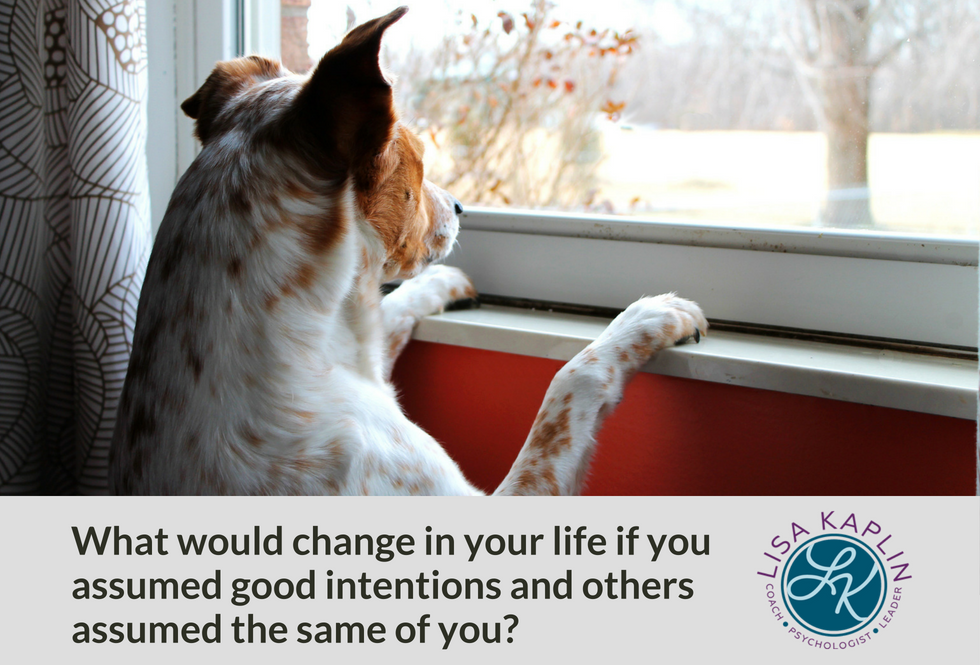Whenever I hear a phrase numerous times in a day or a week, I know it’s probably something that I both need to hear and need to share. A few weeks ago I kept hearing the phrase, “Assume good intentions.” I heard a number of co-workers who had struggled through a very divisive and trying time at work say those words to and about each other. The team members who refused to adopt these words were decidedly more angry and frustrated than their accepting counterparts.
I also heard it when my son’s future mother-in-law spoke those same words to her daughter (my future daughter-in-law) about a disagreement she was having with my son. They were wise words in that both my son and his fiancé seem to truly have good intentions for each other despite the periodic misunderstandings. If someone had given me that advice as a young married woman, it probably would have saved my husband and me hundreds of hours of fighting!
What is the benefit of assuming the worst of intentions of others? If we assume good intentions and we are wrong, nothing is really lost. If, however, we don’t assume good intentions, we are likely to only see the worst in the other person and make any disagreements with them even more challenging. When someone forgets to do something that we asked of them, are they intentionally being rude or simply forgetful in the moment? Aren’t there so many situations in which we can assume the worst, yet have little evidence to prove our hypothesis correct?
The Benefits of Assuming Good Intentions
Here’s the thing…most of us do have good intentions. We don’t always have great behaviors to go with those intentions. But most of us, at least in the moment, feel we are doing our very best. That same week, I messed up some banking for our family. It was a rather large mistake and made one of our banking accounts very overdrawn. I saw the frustration in my husband’s face and then I heard him say, “It’s okay, we’ll figure it out.” I knew that he had, after a moment or two, assumed good intentions. His assumption was correct in that why would I intentionally mess up our bank accounts?
What would change in your life if you assumed good intentions and others assumed the same of you? #relationships #mistakes #forgiveness Click To TweetThat same week (Can you tell I was a bit spacy?), we were meeting two other couples out for dinner. We showed up to the restaurant, sat at the table, and ordered drinks. A few minutes later my friends started texting and asking where we were. I assumed they were in another area of the restaurant, so I walked around looking for them. Suddenly, I realized that my husband and I were in the wrong restaurant. It was a restaurant with similar cuisine and a similar name, but still the wrong restaurant. We paid for our drinks, hopped in the car, and arrived to the right restaurant twenty minutes later than the reservation time. Our friends just had a good laugh about it. Why assume anything in that situation but good intentions?
Ask yourself why you don’t assume good intentions. Who is benefiting when you don’t? How could those assumptions be hurting your relationships, both personally and professionally? What would change in your life if you assumed good intentions and others assumed the same of you?
Love,

Lisa Kaplin Psy. D. PCC


Lisa, you’re right. Life is easier and I am more content when I don’t go through my day thinking every mistake is a deliberate effort to make me miserable. Giving each other the benefit of the doubt makes relationships run so much more smoothly.